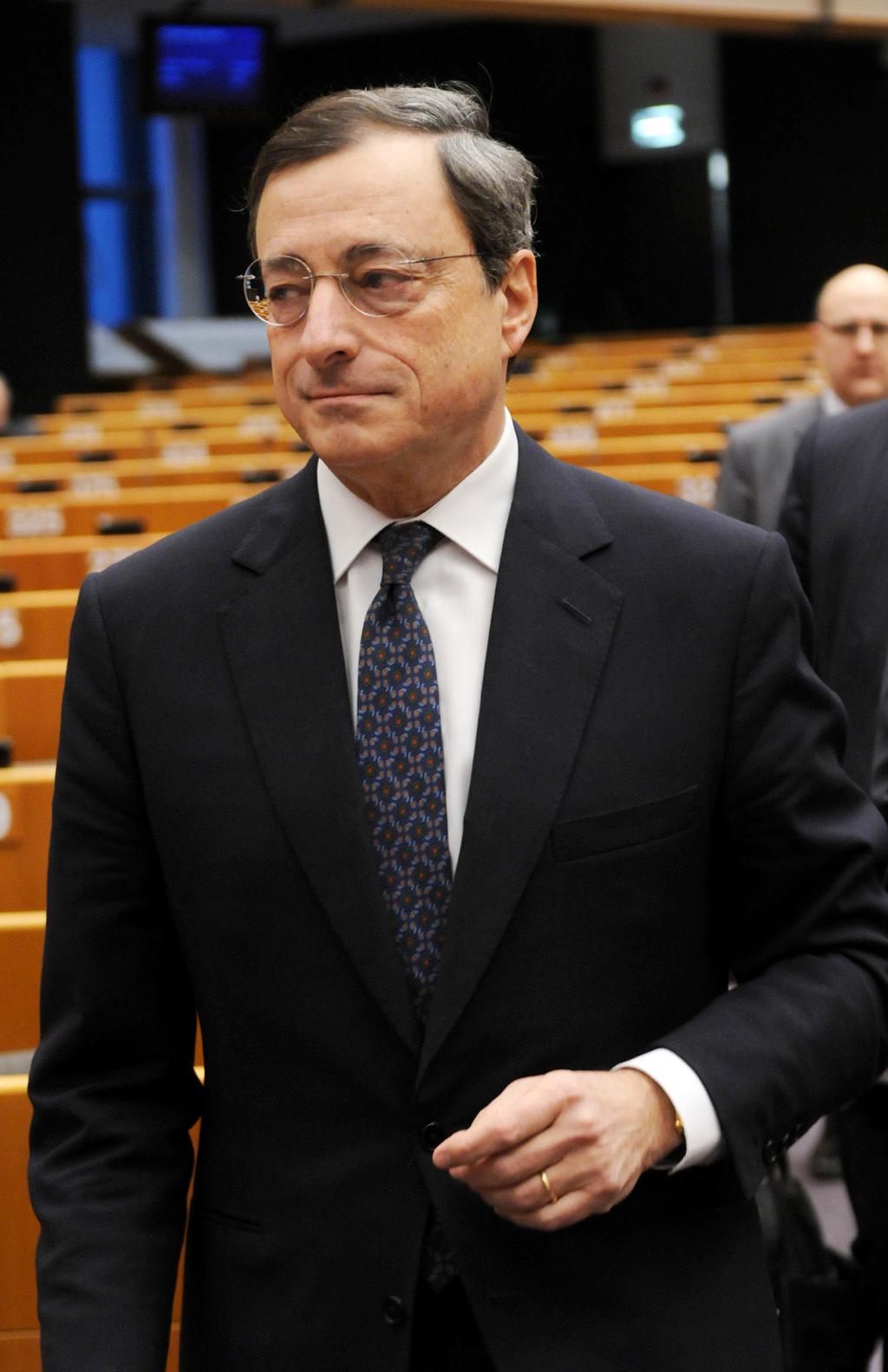The euro zone: the central bankers’ latest view on the crisis
European Central Bank Chief Mario Draghi arrives at the European Parliament in Brussels to give his first speech since taking up the job last month. He called for a fiscal union throughout the euro zone.
When Central Bankers talk, people listen. Or maybe they don't. In any case, two of Europe's most important central bankers spoke to the press today and they had some very interesting things to say.
First, Mario Draghi, new head of the European Central Bank, making his maiden speech before the European Parliament. Forgive me for quoting at length:
"What I believe our economic and monetary union needs is a new fiscal compact … Just as we effectively have a compact that describes the essence of monetary policy – an independent central bank with a single objective of maintaining price stability – so a fiscal compact would enshrine the essence of fiscal rules and the government commitments taken so far, and ensure that the latter become fully credible, individually and collectively."
This is as close as Draghi could get to stating the obvious, if the euro is to survive, tax policies will have to be set at euro zone level, not at national level. That much was clear by a point the ECB chief added a minute later.
"Other elements might follow … " What are those other elements? Euro zone wide political institutions that have the ability to set fiscal policy.
Draghi concluded, "A new fiscal compact would be the most important signal from euro area governments for embarking on a path of comprehensive deepening of economic integration. It would also present a clear trajectory for the future evolution of the euro area, thus framing expectations."
Okay, it's not up there with, "We the People of the United States, in order to form a more perfect union," or any of Alexander Hamilton's more forceful contributions to the Federalist Papers. But clearly Draghi sees where the solution to the euro zone crisis lies. The question is whether the currency can survive the short term assault by the bond markets on its individual members sovereign debt.
According to Sir Mervyn King, Governor of the Bank of England, the answer to that question is, nobody knows. King was speaking at a press conference to present the latest analysis of the bank's Financial Stability Board.
Describing the situation, King came up with the soundbite of the week: "It is not a liquidity crisis, it is a solvency crisis." He was referring to yesterday's coordinated intervention by central banks around the world to prop up Europe's beleaguered retail banks. These institutions are holding an awful lot of iffy sovereign national debt.
King acknowledged that the bank was making contingency plans for the breakup of the euro zone. "Maybe it (the euro zone) won't breakup, maybe it will continue in various forms but maybe there will still be questions of default. None of us really know."
He also urged the country's private banks to begin making contingency plans to build up cash reserves – including not paying out massive bonuses to its top executives!
Who is listening to all this? As I write markets seem to be doing better … but that is probably because the central banks – including the Federal Reserve – showed yesterday they were willing to provide a backstop for the banking system. Money talks, as they say, and something else walks.
We want to hear your feedback so we can keep improving our website, theworld.org. Please fill out this quick survey and let us know your thoughts (your answers will be anonymous). Thanks for your time!
